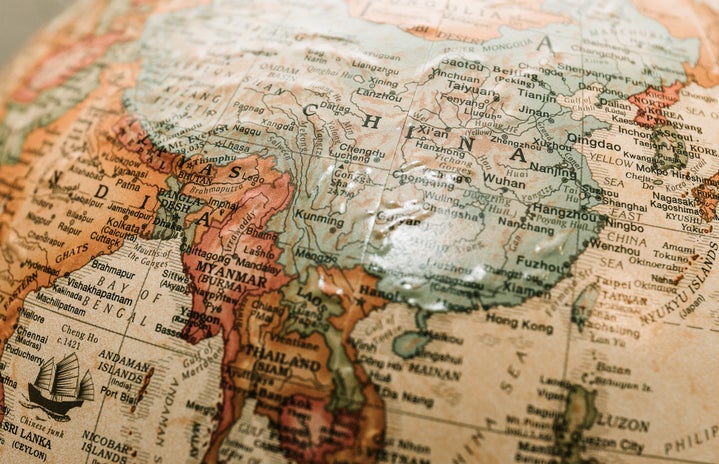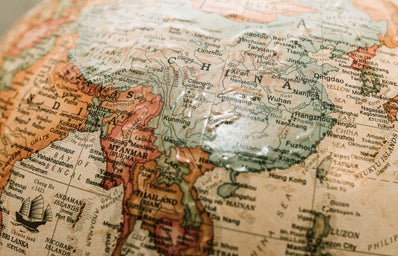Sometimes referred to as the ‘rape capital of the world,’ the Democratic Republic of Congo (DRC) faces an ongoing issue of sexual and gender-based violence that disproportionately affects women and young girls. Burdened by decades of conflict, the violence in the DRC is deeply intertwined with the country’s political unrest and economic fragility.
Gender-based violence in the DRC manifests in numerous forms, including sexual violence during armed conflict, domestic abuse, and early and forced marriages. For decades, armed conflict has arisen due to clashes between armed groups who use sexual violence and rape as terror tactics and weapons of war. Tensions can be traced back to the Rwandan Genocide in 1994, when Hutu militias fled into the DRC, causing troops from the Rwandan Patriotic Army to enter the Congo in hopes of disintegrating them. Over the past decade, it is estimated that over 1 million women have been victims of rape due to the armed conflict. Many of these women have been displaced because of the war, causing them to be even more vulnerable and easy to target.
For any of the women who make it out alive from the sexual violence, it’s very unlikely for them to speak out. Not only do many women fear reprisal for speaking out against their rapists, but with an underfunded judicial system, the victim must pay for the court proceedings to bring the perpetrator to trial. But with 70% of the population living below the poverty line, many women are forced to just drop it. In the DRC victim-blaming is a common response to sexual violence. Survivors are frequently alienated by their communities and families, who may view them as “tainted” or blame them for the violence they have endured. Alone, victims are forced to suffer the stigma and humiliation, oftentimes leaving them permanently damaged – physically and mentally.
Sexual violence during the war is a by-product of a system of patriarchy where power relations are hierarchal and motivated by masculinity. Men’s use of sexual violence has become considered ‘normal’ by a large percentage of men and women, which is manifested in the high level of rapes occurring at home (by partners). In the DRC marital rape is not explicitly criminalised, mainly due to the ‘Family Code’ which guarantees a women’s submission to men. In the DRC, a woman needs her husband’s permission to access judicial institutions, buy land, travel or accept a job, making women’s fight for justice even harder. According to the UN, in 2018, 35.6% of women aged 15-49 reported that they had been subject to physical and/or sexual violence by a current or former intimate partner in the past year. It has been estimated that 51% of Congolese women will experience intimate partner violence in their lifetime.
It is apparent that in times of crisis, women and girls suffer. Due to the devasting effects of the armed conflict, economic decline and famine occurs. To reduce the number of mouths to feed in a household, young girls are forced to leave home early in order to marry. The UN reports that over 37% of women were forcibly married before they were 18.
As stressed in the Gender Country Profile DRC 2014, “women and girls are not valued as men and boys.” Gender inequality is translated into deeply discriminatory social norms and values in all spheres of life. Very few Congolese women have access to decent jobs, and in general women and girls have less access to education than men and boys, leading to higher rates of illiteracy. In the DRC, women are second-class citizens
The deep-rooted cultural norms, discrimination, and weak legal protections perpetuate cycles of gender-based violence, and lack of women’s rights. Despite efforts by local activists, NGOs, and some government initiatives, progress to alleviate women’s suffering has been slow. Gender-based violence, lack of access to education and healthcare, and exclusion from economic and political opportunities severely limit Congolese women’s ability to achieve independence and security. These challenges stem from systemic gender inequality, entrenched cultural norms, and widespread gender-based violence. While progress is being made through advocacy, there is a long road ahead before women in the DRC can live freely and with dignity.
Sources:
https://africa.unwomen.org/en/where-we-are/west-and-central-africa/democratic-republic-of-congo
https://www.womenforwomen.org/where-we-work/democratic-republic-congo
https://www.womenpeacesecurity.org/region/africa/central-africa/democratic-republic-of-the-congo/
https://reliefweb.int/report/democratic-republic-congo/women-girls-and-protection-crisis-eastern-drc
https://www.corteidh.or.cr/tablas/r29631.pdf
https://kvinnatillkvinna.org/wp-content/uploads/2018/10/13-Equal-power-lasting-peace-DRC_ENG.pdf
https://www.europarl.europa.eu/EPRS/EPRS-AaG-542155-Sexual-violence-in-DRC-FINAL.pdf
https://data.unwomen.org/country/democratic-republic-of-the-congo
https://www.tandfonline.com/doi/pdf/10.1080/10402650903323546


